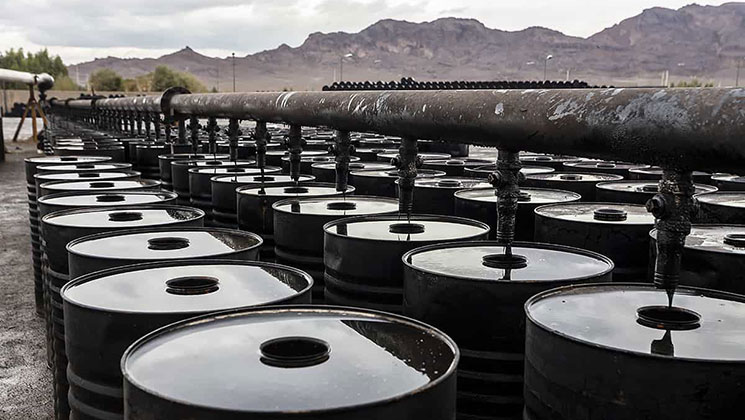Bitumen
Bitumen
The term bitumen refers to a viscous, non-crystalline, black or dark brown substance that can be dissolved in organic solutions, such as toluene and carbon disulfide, and has adhesive and waterproof properties.
This substance is generally composed of hydrocarbons, which usually contain 80% carbon and 15% hydrogen. Other residues in this viscous material include oxygen, sulfur, nitrogen, and various metals. Bitumen can be obtained from various sources and occurs naturally. The amount of this material in crude oil may vary, but the more normal range is between 25% and 40%, while the usual range is 15% to 80%.
Broad classification for crude oils
- Bitumen base
- Paraffin base
- Bitumen and paraffin base
Depending on the type of crude oil, bitumen exists either as a colloidal dispersion or in a solid state. During the refinement process, the oil-to-particle ratio changes as petroleum oils are removed by distillation. Instead of these particles being scattered and relatively few in number, they are getting closer to each other and increasing in size.
Typically, oil tar is a colloidal dispersion of black solids (hydrocarbons) at the end of the distillation process. There is also a yellow-brown petroleum liquid known as the melted fraction in which asphaltenes are dispersed. Also, to be present in asphaltenes as a stabilizing agent, another group of hydrocarbons are known as resins.
This substance is found in nature in many forms, from the hard, easily crushed bitumen found in rock asphalt to the softer, more viscous material found in oil sands and so-called asphalt lakes. This material is usually mixed with various proportions of mineral or vegetable impurities that must be extracted before use, and is effectively used as an engineering material.
It may also be found as asphaltite, natural bitumen without various impurities in solution in carbon disulfide. Natural bitumen, like petroleum, occurs as a result of the specific breakdown of marine debris. This occurs over thousands of years through porous rocks such as limestone or sandstone, often transported by volcanic action.
Separation of bitumen and tar coal is important. Although coal tar is black and sticky like this material, it is derived from the carbon of coal and therefore has very different chemical properties.
Engineering projects everywhere in the world, from the construction of transcontinental highways to the waterproofing of flat roof surfaces, rely on the special properties of bitumen. Crude oil processed by the oil industry provides a small percentage of this vital substance.
The special properties of bitumen are used in a variety of engineering projects around the world, from the construction of transcontinental highways to the waterproofing of flat roof surfaces. It is important to note that crude oil is only a small percentage of this essential substance produced by the oil industry
Characteristics of bitumen
- It is a strong and durable glue-like material that holds together a wide variety of other materials without matching their properties. Durability is essential for large engineering projects such as roads and waterways that must last 20 years or more.
- Due to its insoluble nature, it is an effective waterproofing insulator. The material is also resistant to the majority of acids, alkalis, and salts. It does not contaminate water, which makes it an excellent choice for use in water flow lines.
- This material gives controllable flexibility to the mineral aggregate mix, which is why most of the total annual production is used in road construction. It is available almost worldwide at economical cost.
Click on the link below to read more:
